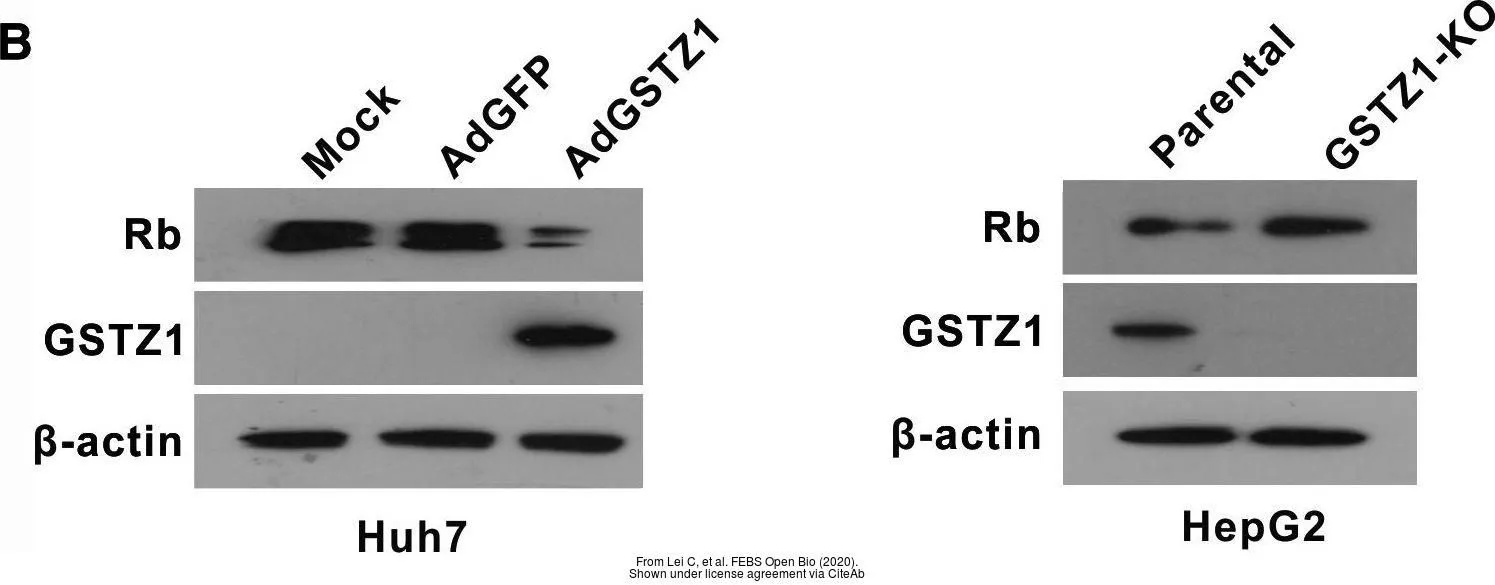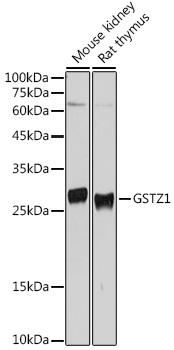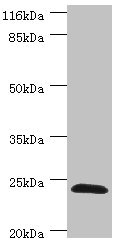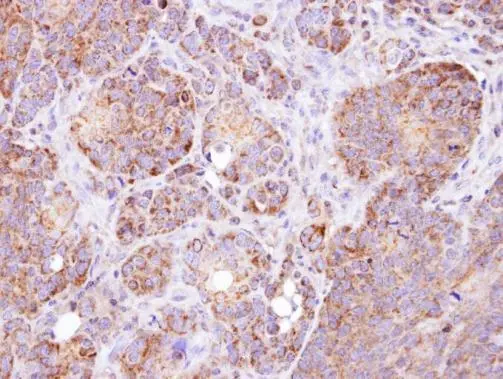
Immunohistochemical analysis of paraffin-embedded SW480 xenograft, using MAAI(GTX106109) antibody at 1:100 dilution.
Antigen Retrieval: Trilogy? (EDTA based, pH 8.0) buffer, 15min
GSTZ1 antibody [N1C3]
GTX106109
ApplicationsImmunoFluorescence, Western Blot, ImmunoCytoChemistry, ImmunoHistoChemistry, ImmunoHistoChemistry Paraffin
Product group Antibodies
ReactivityHuman
TargetGSTZ1
Overview
- SupplierGeneTex
- Product NameGSTZ1 antibody [N1C3]
- Delivery Days Customer9
- Application Supplier NoteWB: 1:500-1:3000. ICC/IF: 1:100-1:1000. IHC-P: 1:100-1:1000. *Optimal dilutions/concentrations should be determined by the researcher.Not tested in other applications.
- ApplicationsImmunoFluorescence, Western Blot, ImmunoCytoChemistry, ImmunoHistoChemistry, ImmunoHistoChemistry Paraffin
- CertificationResearch Use Only
- ClonalityPolyclonal
- Concentration0.98 mg/ml
- ConjugateUnconjugated
- Gene ID2954
- Target nameGSTZ1
- Target descriptionglutathione S-transferase zeta 1
- Target synonymsGSTZ1-1, MAAI, MAAID, MAI, maleylacetoacetate isomerase, S-(hydroxyalkyl)glutathione lyase, glutathione S-alkyltransferase, glutathione S-aralkyltransferase, glutathione S-aryltransferase, glutathione transferase zeta 1, maleylacetone isomerase
- HostRabbit
- IsotypeIgG
- Protein IDO43708
- Protein NameMaleylacetoacetate isomerase
- Scientific DescriptionThis gene is a member of the glutathione S-transferase (GSTs) super-family which encodes multifunctional enzymes important in the detoxification of electrophilic molecules, including carcinogens, mutagens, and several therapeutic drugs, by conjugation with glutathione. This enzyme also plays a significant role in the catabolism of phenylalanine and tyrosine. Thus defects in this enzyme may lead to severe metabolic disorders including alkaptonuria, phenylketonuria and tyrosinaemia. Several transcript variants of this gene encode multiple protein isoforms. [provided by RefSeq]
- ReactivityHuman
- Storage Instruction-20°C or -80°C,2°C to 8°C
- UNSPSC41116161

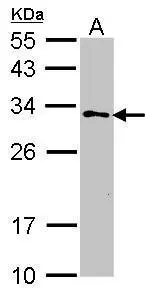
![GSTZ1 antibody [N1C3] detects GSTZ1 protein at cytoplasm by immunofluorescent analysis. Sample: HepG2 cells were fixed in ice-cold MeOH for 5 min. Green: GSTZ1 protein stained by GSTZ1 antibody [N1C3] (GTX106109) diluted at 1:500. Blue: Hoechst 33342 staining. GSTZ1 antibody [N1C3] detects GSTZ1 protein at cytoplasm by immunofluorescent analysis. Sample: HepG2 cells were fixed in ice-cold MeOH for 5 min. Green: GSTZ1 protein stained by GSTZ1 antibody [N1C3] (GTX106109) diluted at 1:500. Blue: Hoechst 33342 staining.](https://www.genetex.com/upload/website/prouct_img/normal/GTX106109/GTX106109_40150_IFA_w_23060120_788.webp)
